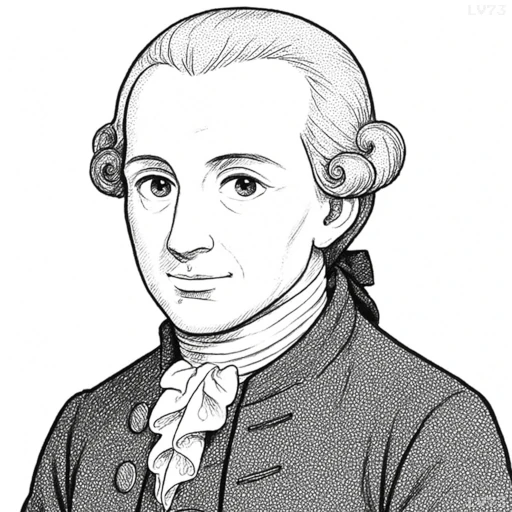“Intuition and concepts constitute… the elements of all our knowledge, so that neither concepts without an intuition in some way corresponding to them, nor intuition without concepts, can yield knowledge.”

- April 22, 1724 – February 12, 1804
- Born in Germany (East Prussia)
- Philosopher
table of contents
Quote
“Intuition and concepts constitute… the elements of all our knowledge, so that neither concepts without an intuition in some way corresponding to them, nor intuition without concepts, can yield knowledge.”
Explanation
In this quote, Immanuel Kant asserts that knowledge is constructed through the interplay of two fundamental components: intuition and concepts. According to Kant, intuition refers to the raw, sensory data we receive from the world, such as sights, sounds, and other perceptions. Concepts, on the other hand, are the mental structures or categories that we use to organize and interpret this sensory data. For Kant, knowledge arises only when these two elements work together—intuition provides the raw material of experience, and concepts provide the framework to understand and make sense of that experience. Without either element, Kant argues, true knowledge cannot be attained.
In modern epistemology and cognitive science, Kant’s view continues to resonate. For example, when learning a new concept in mathematics or science, students often need both an intuitive grasp of the subject matter (through sensory experience or visualization) and the application of established theories or concepts to make sense of their observations. Without concepts to structure our experiences, we would have only a disordered stream of sensory data, unable to form coherent understanding. Similarly, without direct experience to ground concepts in the real world, abstract theories can become disconnected and meaningless. This idea is reflected in areas such as education, where active learning involves not just acquiring theoretical knowledge but applying it through hands-on, real-world experiences.
Historically, Kant’s perspective represents a synthesis between empiricism and rationalism. The empiricists argued that all knowledge comes from experience, while rationalists believed that knowledge is derived from innate ideas or reason alone. Kant’s critical philosophy proposed that knowledge results from the combination of both sensory input and the mental structures we use to interpret that input. This framework has deeply influenced modern philosophy of mind, epistemology, and psychology, particularly in understanding how we perceive and organize the world. Today, his ideas inform theories of cognitive development and how conceptual understanding and sensory experiences interact to form a coherent perception of reality.
Would you like to share your impressions or related stories about this quote in the comments section?

